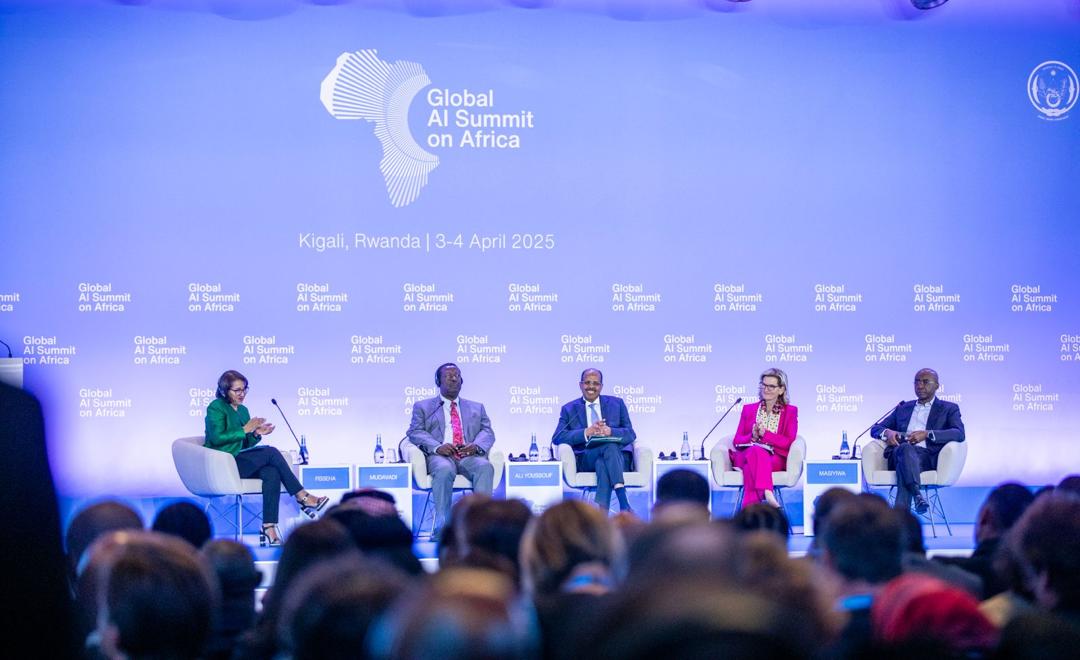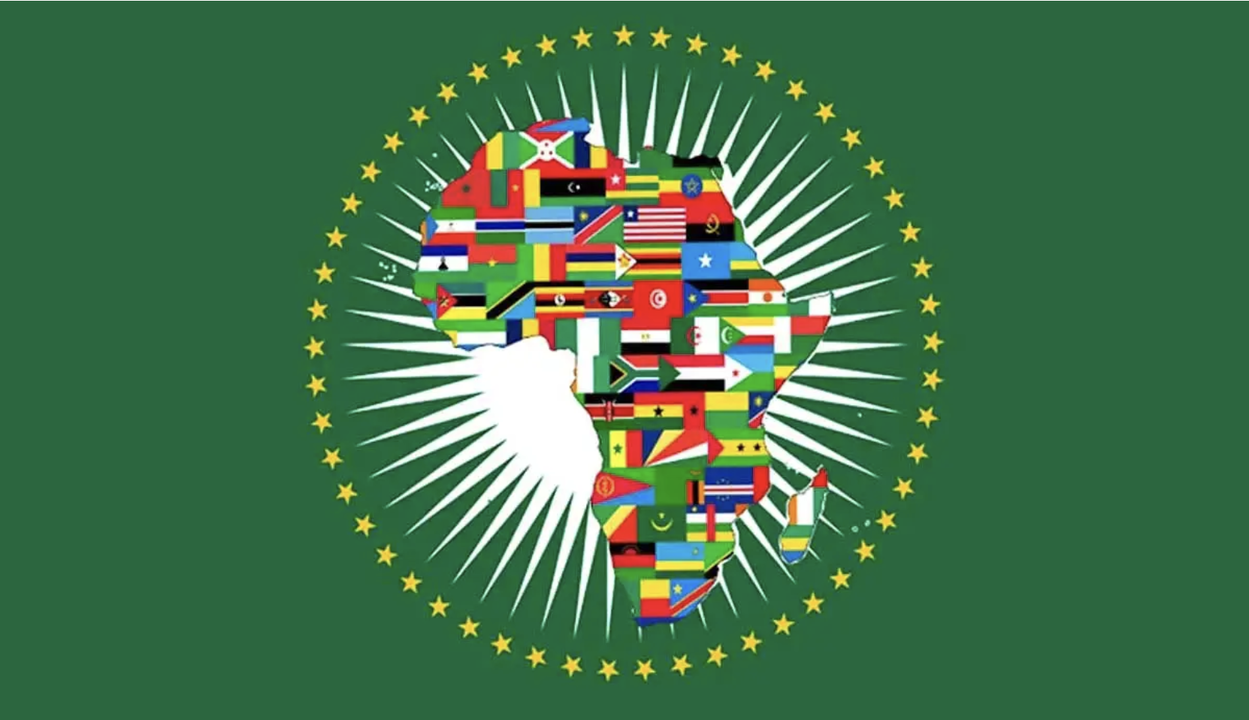In a landmark convergence of thought leadership, the African Union Commission, in partnership with the Government of Ethiopia and the Institute for Security Studies, convened a High-Level Policy Dialogue on Artificial Intelligence in Africa. Held in Addis Ababa, Ethiopia, this influential gathering brought together dignitaries and decision-makers from over 40 African nations—including Heads of State, Ministers, AU Commissioners, diplomats, academics, civil society actors, and private sector leaders.
As a central feature of the Ethio Tech Expo (ETEX) 2025, under the visionary theme “Leveraging Artificial Intelligence for Africa’s Prosperity and Collaboration,” the Dialogue sought to chart a transformative path for Africa’s engagement with AI—one rooted in the continent’s development goals, and aligned with both Agenda 2063 and the UN Sustainable Development Goals (SDGs).
This timely engagement follows the adoption of the Continental Artificial Intelligence Strategy by the AU Executive Council in July 2024. With momentum gathering, African leaders collectively called for urgent, coordinated interventions to ensure that AI becomes a tool for inclusive growth, ethical innovation, and technological sovereignty. The Dialogue underscored the imperative for African nations not only to access and benefit from AI but to shape and govern it in a way that reflects the continent’s values, priorities, and vision for the future.
A Continental Vision for AI Empowerment
In his keynote address, H.E. Prime Minister Abiy Ahmed of Ethiopia officially opened the event with a powerful message: “AI is no longer a distant dream—it is the engine of transformation across sectors, geographies, and societies.” He emphasized Africa’s conscious shift from being mere consumers of external technologies to becoming active creators of home-grown AI solutions. “We have chosen to lead innovation shaped by our realities, to meet our challenges with our own ingenuity,” he affirmed.
H.E. Selma Malika Haddadi, Deputy Chairperson of the AU Commission, further articulated the Union’s vision: to harness AI for development and shared prosperity by making it accessible for socio-economic advancement, cultivating domestic AI ecosystems, encouraging multi-stakeholder governance, and promoting context-sensitive regulation. Acknowledging that Africa accounts for only 1% of global AI compute capacity, she issued a call to action—urging investment in renewable-powered data centers, regional AI infrastructure, and cross-border digital networks. She stressed that Africa’s vast linguistic and cultural diversity, if ethically leveraged, can fuel inclusive AI models that honor identity while serving modern development needs.
Strategic game plan for AI Transformation
A standout panel, “Collaborative Strategies for AI Adoption in Africa,” featured H.E. Lerato D. Mataboge, AU Commissioner for Infrastructure and Energy, who outlined a pragmatic blueprint to scale AI innovation continent-wide. She identified four critical gaps: digital infrastructure, skilled workforce, high-quality datasets, and sustainable funding. While applauding AI-driven innovation in sectors like agriculture, health, education, and language services, she noted that progress is still highly uneven. “Over 83% of AI startup funding in Q1 2025 went to just four countries: Kenya, Nigeria, South Africa, and Egypt,” she warned, calling for more inclusive innovation ecosystems.
With only 3% of the global AI talent pool residing in Africa, Commissioner Mataboge raised concerns about brain drain and championed a homegrown approach to capacity building. “The next generation of AI architects must be African—educated in Africa, and designing solutions tailored to Africa’s realities.”
Voices across the world:
Other distinguished panelists, including Dr. Gedion Timotheos (Ethiopian Minister of Foreign Affairs), representatives from the AU Commission, and Dr. Fonteh Akum (Executive Director, ISS), echoed the urgency of Africa not just participating in—but leading—the global AI revolution. The collective message was clear: Africa’s demographic dividend, paired with smart policy and infrastructure investments, can position the continent at the forefront of ethical and innovative AI development.
Two thematic sessions enriched the Dialogue with global and regional insights. The first, “AI for Africa: Lessons from Around the World,” featured perspectives from countries including the UK, UAE, China, and Brazil. The second, “Imperatives for AI Governance and the Need for Cooperation,” included expert voices from Senegal, Meta, and Addis Ababa University. These sessions explored best practices, inclusive governance frameworks, and the role of cross-continental collaboration in narrowing the AI development gap.
A Continental Commitment to Ethical and Inclusive AI.
The Dialogue concluded with the release of a communiqué declaring Artificial Intelligence a strategic priority for Africa. The statement outlined commitments to co-develop robust digital infrastructure, strengthen computing capabilities, enhance data governance, build local AI talent, and promote ethical standards that protect citizens and uphold human dignity.
It affirmed that AI, when thoughtfully governed and inclusively implemented, can accelerate the achievement of Agenda 2063—Africa’s blueprint for inclusive growth, sustainable development, and global relevance.
To maintain this momentum, the next High-Level Policy Dialogue is scheduled to take place during the AU Summit in February 2026, once again in Addis Ababa.
Beyond policy discourse, this year’s Dialogue also served as a vibrant showcase of home-grown African tech innovation. An exhibition of digital solutions from across the continent underscored not only the richness of Africa’s creative potential but also the political resolve to place innovation at the heart of Africa’s future.




